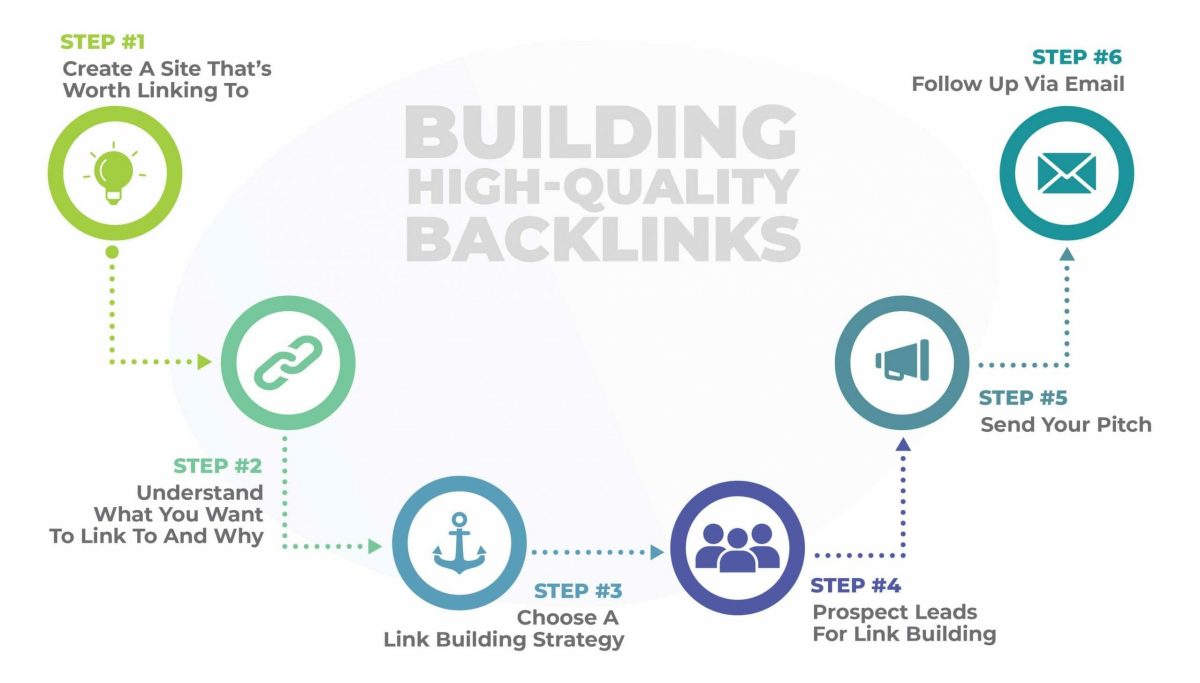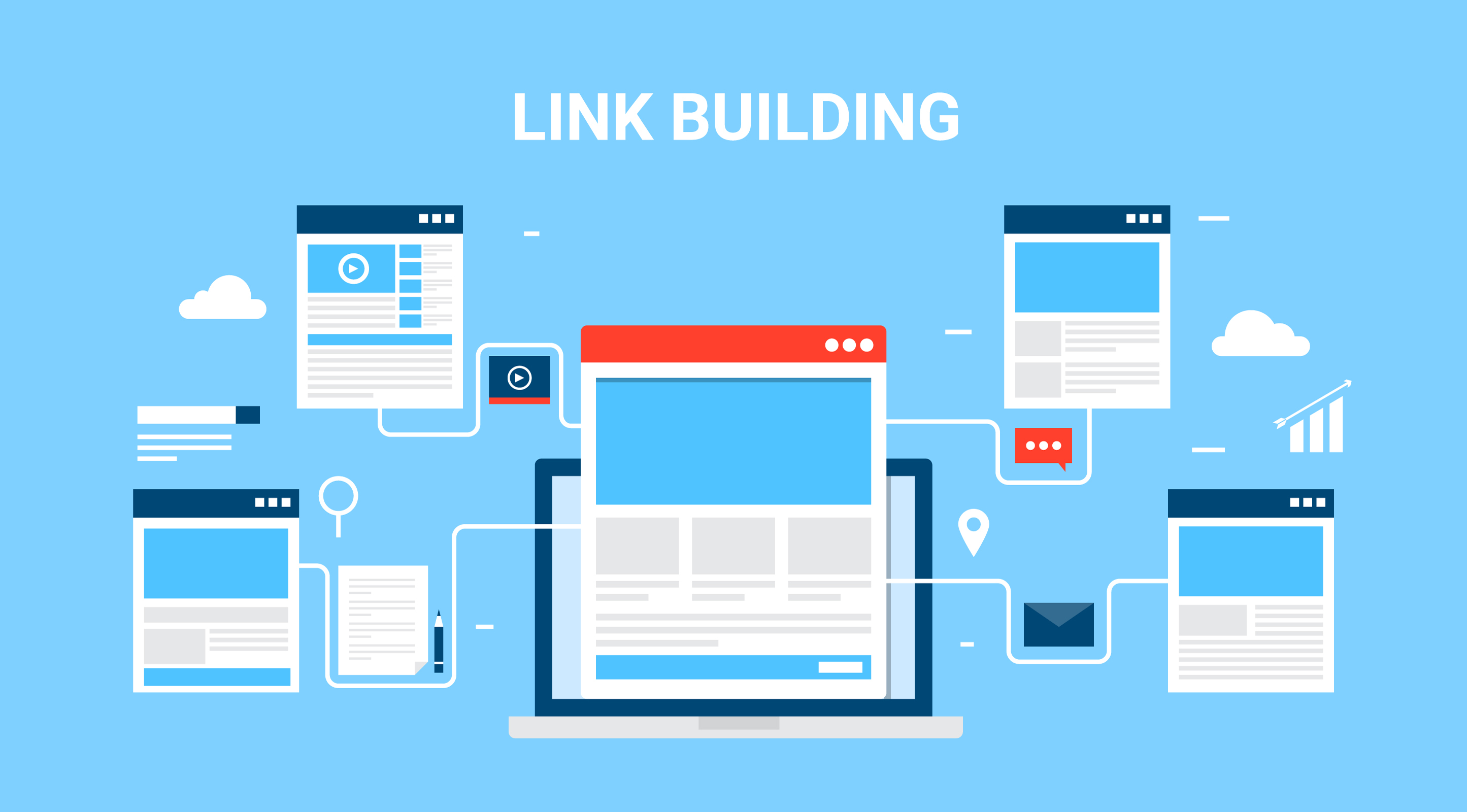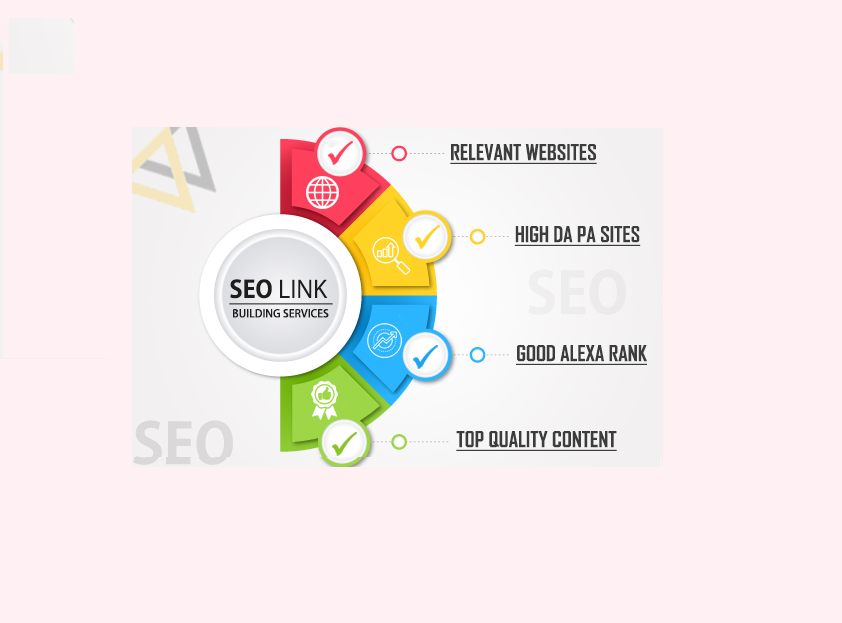
In the competitive world of search engine optimization(SEO), Homepage Link BuildingStrategies are an essential component for success. Backlinks, which are links from other websites to your own, act as votes of confidence, signaling to search engines that your site is authoritative and valuable. And when it comes to link building, your homepage is the most important page on your entire website.
Your homepage serves as the gateway to your website, introducing visitors to your brand and content. By building backlinks to your homepage, you're essentially telling search engines that this is the most important page on your site, one that deserves to rank high in search results. Strong homepage backlinks can lead to improved visibility, increased traffic, and ultimately, a boost in your overall SEOperformance.
What Is Link Building?
Link building is the process of getting other websites to link to your website. Search engines use links to crawl the web and determine the authority of a website. The more high-quality links your website has, the higher it will rank in search engineresults pages (SERPs).
Link building is an important part of any SEO strategy. It can help you to improve your website's ranking in SERPs, which can lead to more traffic and better lead generation.
Benefits Of Link Building
Here are some of the benefits of link building:
- Increased website traffic -When other websites link to your website, it can help to drive more traffic to your site. This is because people are more likely to click on a link if it comes from a website that they trust.
- Improved search engine rankings -Link building is one of the most important factors that search engines use to determine the authority of a website. The more high-quality links your website has, the higher it will rank in SERPs.
- Increased brand awareness -Link building can help to increase brand awareness by exposing your website to a wider audience. When other websites link to your site, it can help to establish your brand as a trusted source of information.
Risks Of Link Building
Here are some of the risks of link building:
- Google penalty - If you build links in a way that is considered to be spammed, you could be penalized by Google. This could result in your website being removed from SERPs.
- Link quality -It is important to build links from high-quality websites. Links from low-quality websites can actually harm your website's ranking.
- Time commitment -Link building can be a time-consuming process. It can take a long time to build high-quality links.
If you are considering link building for your website, it is important to do your research and understand the risks involved. You should also develop a strategy that is tailored to your website's specific needs.
Why Are Links So Important?
Links are important for a number of reasons, including:
1. They help search engines understand the structure of your website - Search engines use links to crawl the web and discover new pages. When a website has a lot of high-quality links, it tells the search engine that the website is important and authoritative.
2. They help you rank higher in search engine results pages (SERPs) -Search engines use links as a way to measure the popularity of a website. The more high-quality links a website has, the higher it will rank in SERPs.
3. They drive traffic to your website - When people click on a link, they are taken to the website that the link is pointing to. This can help to drive traffic to your website and increase your audience.
4. They help you build relationships with other websites -When you guest blog on another website or participate in online communities, you are building relationships with other website owners. These relationships can be mutually beneficial, and they can help you to get more links to your website.
5 Homepage Link Building Strategies
Homepage link buildingis the process of getting other websites to link to your homepage. This is an important part of SEO, as it can help to improve your website's ranking in search engine results pages (SERPs).
Here are five homepage link building strategies that you can use:
1. Create High-quality Content
One of the best ways to get other websites to link to your homepage is to create high-quality content that people want to share. This could include blog posts, infographics, videos, or other types of media. If you can create content that is informative, engaging, and valuable, people will be more likely to link to it from their own websites.
2. Guest Blogging
Guest blogging is another great way to get links to your homepage. This involves writing and submitting blog posts to other websites in your industry. When you write a guest blog post, you can include a link back to your homepage in your author bio. This is a great way to get exposure to a new audience and get some high-quality links to your site.
3. Broken Link Building
Broken link building is a technique that involves finding broken links on other websites and then contacting the webmaster to suggest replacing them with a link to your homepage. This is a great way to get links from websites that are already relevant to your niche.
4. Press Releases
If you have any newsworthy announcements, you can use press releases to get links to your homepage. When you submit a press release, you can include a link back to your homepage in the body of the release. This is a great way to get exposure to a large audience and get some high-quality links to your site.
5. Social Media Engagement
Social mediacan be a great way to get people to link to your homepage. When you share your content on social media, you can encourage people to visit your website and share your content with their own followers. This can lead to more organic links to your homepage.
By following these five strategies, you can start to build high-quality links to your homepage and improve your website's ranking in SERPs.
Authority Of The Page Vs Authority Of The Site
In the realm ofsearch engine optimization (SEO), the terms "page authority" and "site authority" are often used interchangeably, but they represent distinct concepts with significant implications for website rankings.
1. Page authority -refers to the influence and credibility of a single webpage within a website. It's measured based on various factors, including the quality and quantity of backlinks pointing to that specific page, the relevance of those backlinks, and the overall content quality of the page itself.
A high page authority indicates that the page is considered valuable and informative by search engines, increasing its likelihood of ranking well for relevant keywords.
2. Site authority - on the other hand, encompasses the overall strength and reputation of an entire domain or website. It's determined by a broader set of criteria, including the overall backlink profile of the entire domain, the domain's age and historical performance, the quality and quantity of content across the site, and the overall user engagement and traffic levels.
A high site authority suggests that the website is considered a trusted and authoritative source of information in its niche, enhancing its overall visibility and search rankings.
The relationship between page authority and site authority is reciprocal. A high site authority can positively impact the page authority of individual pages within the site, as search engines perceive the entire domain as trustworthy. Conversely, strong page authority can contribute to the overall site authority, as it demonstrates the value and relevance of specific pages within the website.
Homepage Link Building - The Secret Weapon For SEO Dominance
Homepage link building is a crucial component of search engine optimization (SEO) and plays a vital role in gaining top rankings in search engine results pages (SERPs). It involves acquiring links from other reputable websites to your homepage, which acts as a strong signal to search engines that your site holds significant value and authority.
By building a strong backlink profile for your homepage, you can effectively boost its visibility, attract more organic traffic, and ultimately enhance your overall SEO performance.
Why Focus On Homepage Link Building?
Your homepage serves as the gateway to your website, making it the most important page on your entire domain. It's the first impression visitors receive, and it sets the tone for their overall experience. By prioritizing homepage link building, you're essentially placing the spotlight on your website's flagship page, highlighting its importance and relevance in your industry.
Benefits Of A Robust Homepage Link Building Strategy
A well-executed homepage link building strategycan yield numerous benefits for your website, including:
- Enhanced Visibility in Search Results - High-quality backlinks to your homepage can significantly improve its ranking in SERPs, making it easier for potential customers to discover your website.
- Increased Organic Traffic -As your homepage gains prominence in search results, you'll witness a surge in organic traffic, attracting more visitors to your website and expanding your audience.
- Elevated Brand Authority -Backlinks from reputable sources act as endorsements, establishing your brand as a trusted and authoritative resource in your industry.
- Greater Social Media Presence -Homepage backlinks often lead to increased social media engagement, further amplifying your brand's reach and visibility.
Measuring The Impact Of Homepage Link Building
To assess the effectiveness of your homepage link building efforts, it's crucial to track relevant metrics such as:
- Backlink Profile -Monitor the number and quality of backlinks pointing to your homepage. Use tools like Google Search Consoleor Ahrefs to track backlink acquisition and analyze their backlink profile.
- Search Engine Rankings - Track your homepage's ranking for relevant keywords in search engines like Google and Bing. Use tools like SEMrush or Moz to monitor keyword rankings and identify trends.
- Referrer Traffic -Analyze the amount of traffic coming to your homepage from referring websites. Use Google Analyticsto track referrer traffic and identify the sources of backlinks.
Link Anchor Text
Anchor text, also known as link label or link text, is the visible, clickable text in an HTML hyperlink. It usually appears in a different color than the surrounding text and is often underlined. Anchor text serves two important purposes:
- It provides context for the linked resource -When a user clicks on a link, the anchor text gives them a clue about what they can expect to find on the linked page. This helps users make informed decisions about whether or not to click on a link.
- It helps search engines understand the content of the linked resource -Search engines use anchor text to help them understand the relevance of a link and the content of the linked page. This can help improve a website's ranking in search engine results pages (SERPs).
Best Practices For Link Anchor Text
Here are some best practices for link anchor text:
- Use descriptive and relevant anchor text - The anchor text should accurately describe the content of the linked page. Avoid using generic anchor text like "click here" or "more information."
- Use a variety of anchor text types -Don't use all exact match anchor text, as this can be seen as spammy by search engines. Use a mix of exact match, partial match, and branded anchor text.
- Use anchor text that is relevant to the target page -The anchor text should be relevant to the content of the target page, not just the keywords that are being targeted.
- Keep your anchor text concise - The anchor text should be no longer than a few words.
- Use natural language -The anchor text should sound natural and not forced.
Homepage Link Building Strategies - FAQ's
What Makes A Good Link In Link Building?
Links should be related to the content at hand; with good anchor text, which is useful for search engines to understand the context of the links. We created these guides to help make your link building and SEO efforts a little easier.
What Are The Three Main Methods For Link Building?
The steps are:
1. Find a page that might link to you
2. Look for broken links on that page
3. Let the webmaster know, and ask if the broken link could be replaced with a link to you.
What Is A Link Building Tool?
Link building refers to the marketing efforts to get links from other websites to your website. It's seen as one of the most powerful tools to achieve higher rankings in search engines. Google's Andrey Lipattsev even confirmed in a Q&A session that backlink is an important ranking factor.
Conclusion
In the ever-evolving landscape of SEO, link building remains a cornerstone of achieving top search rankings and driving organic traffic. While link building strategies can vary depending on the specific goals and target audience, one crucial element that often gets overlooked is the importance of homepage link building.
To effectively harness the power of homepage link building, it's essential to adopt a strategic approach. This involves identifying high-quality websites relevant to your industry and reaching out to their webmasters or editors with compelling reasons to link to your homepage. By creating valuable content, engaging in industry discussions, and actively participating in online communities, you can increase your chances of securing these valuable backlinks.


